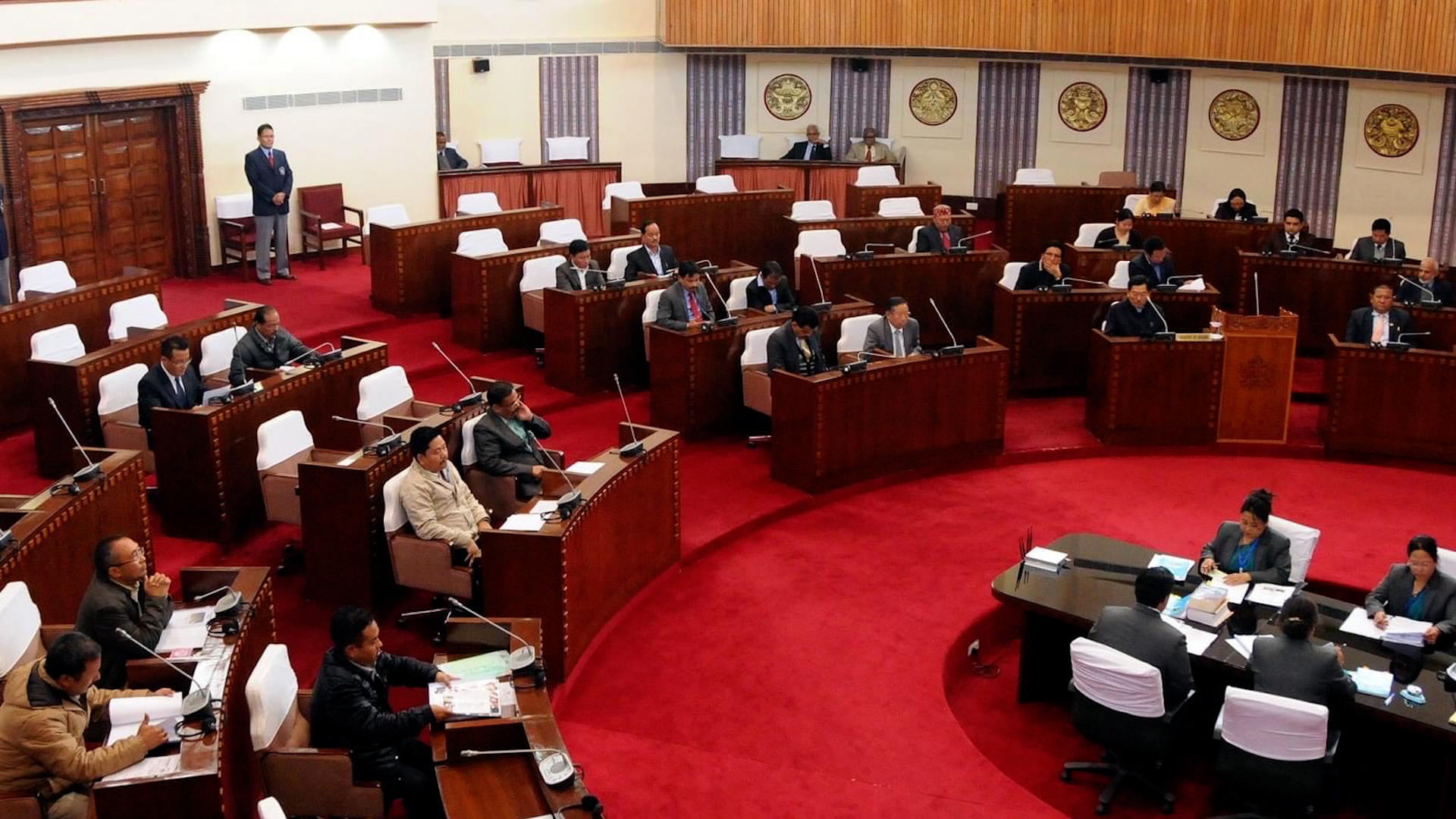GANGTOK: A state that has kept over 46 per cent of its Assembly seats reserved for its indigenous communities to ensure their political representation, Sikkim’s complicated political history, competing narratives and complex ethnic-religious compositions have left two major Nepali ethnic groups without any reservation.
In the 32-member state assembly, 15 constituencies are reserved — 12 for the Bhutia-Lepcha communities, two for Scheduled Castes, and one seat for Sangha (Buddhist monks).
When the tiny Himalayan state became part of the Indian Union in 1975, a special provision for Sikkim was made under Article 371(f) of the Constitution that safeguards its old laws prior to the merger.
Sikkimese of Bhutia- Lepcha origin, Scheduled Castes and Buddhist monks enjoy political reservation in the state assembly while the majority of Nepalis of Sikkimese origin – subdivided among various groups – lost their political reservation in 1979 when the Parliament abolished 15 seats reserved for Sikkimese Nepalis.
Among the Sikkimese Nepalis, 12 communities – Thami, Bahun-Chettri (Khas), Sanyasi (Jogi), Newar, Kirat Khambu Rai, Kirat-Dewan, Sunuwar, Gurung, Mangar, Bhujel and Majhi — do not have Schedule Tribe status. The issue of securing the status to these communities has been seen as a key factor for the future political reservation to these unreserved communities.
In 2003, two communities from the Sikkimese Nepalis – Limboo and Tamang – were granted schedule tribe status but since then there has been a long struggle for the two tribal groups to secure political reservation in the state assembly.
Unlike other states, Sikkim’s special protection under Article 371(f) in addition to Article 332 of the Constitution governs any form of reservation related to various communities of Sikkim.
In a written reply to a question in Lok Sabha in 2019, Union tribal affairs minister for state, Renuka Singh, had said, “A proposal for reservation of seats for Limboo and Tamang communities in Sikkim Legislative Assembly is under consideration of the Government of India.”
The hotly-debated political issue of securing assembly reservation to the Limboo and Tamang communities has had successive regimes in Sikkim on tenterhooks. The erstwhile Pawan Chamling-led SDF government had provided “40 seats formula” to the Centre government wherein five seats would be reserved for the two communities.
Subsequently, after the regime change in Sikkim, the Prem Singh Tamang-led SKM government has not yet made any announcement of a concrete formula to secure reservations for the two communities.
The ruling SKM party has raised the demand in the Parliament and also formed a committee comprising of 10 members from both the communities for seat reservation in the Sikkim Legislative Assembly.
In a press release, Limboo Tamang voluntary committee (LTVC) lashed out at the state government, “LTVC would like to repeat and remind SKM government that LT seat requires SKM party’s formula, not any new committee. Why is it difficult for SKM to disclose their formula?”
“When it was in opposition, SKM demanded the then SDF government to form LT seat from 32 and even boasted that they have LT seat reservation formula from the same which they would disclose after forming the govt. At least SDF had come up with Burman Commission and 40 formula while SKM’s stand hasn’t even begun. Perhaps, SKM is silently supporting SDF’s formula now what they had opposed during opposition,” the committee alleged.
BJP, meanwhile, has been a silent observer. The party is yet to spell out its formula. Party leaders have repeatedly asked the state government to provide a formula for the Centre government to resolve the issue.
Sikkim Bhutia Lepcha Apex Committee (SIBLAC), an organisation representing the Sikkimese Bhutia and Lepcha communities, have been demanding a proportionate rise in the number of assembly seats reserved for the two communities if there is an increase in the number of seats in the state legislative assembly to provide reservation to other communities.
For political parties in Sikkim, securing the constitutional rights of Limboo-Tamang communities without disturbing the present status quo of reservations in the state assembly has been a challenge. The two communities – Limboo and Tamang – are the only two communities from the Sikkimese Nepalis to secure tribal status.
With the state government demanding Schedule Tribe status from the Centre for all the twelve communities of the Sikkimese Nepalis (also called the Left out communities), the matter of political reservation in the Assembly will not only test the political acumen of the state’s leadership but also the Centre government’s resoluteness to give equitable justice to all sections of Sikkimese population.










